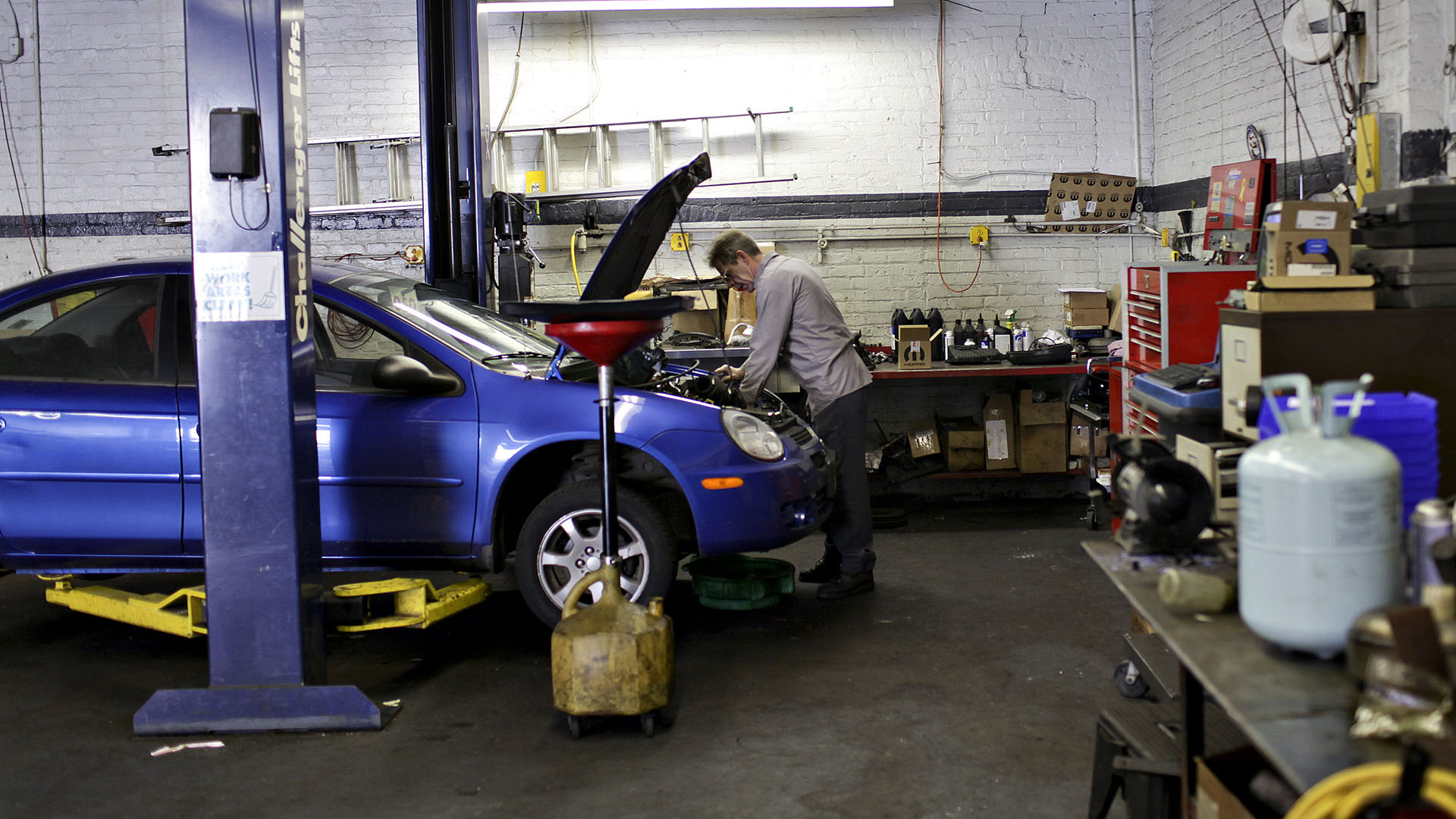

That $1,000 axle job may sting a little, but the dealer’s not (usually) ripping you off—cars are more complex than ever, parts are more expensive than ever, and there’s a severe shortage of specialized mechanics to put the two together. With an estimated 25,000 open technician jobs at both in-house dealers and independent franchise operations across the country, manufacturers are struggling to find qualified candidates as the traditional pipelines of secondary technical education and mom-and-pop repair shops continue to shrink. Master mechanics can earn six figure salaries down the line, but there just aren’t enough people entering the trade.
Perhaps recognizing their cars aren’t worth very much without people to fix them, automakers are stepping up their efforts. The New York Times reports companies like BMW and Fiat-Chrysler have recently bolstered their training programs in order to help reduce that deficit. At BMW, corporate hiring managers now travel to technical schools and career fairs on behalf of their independent franchise dealers, who traditionally find their own candidates. Still, what they find is not always encouraging, considering the difference in base skills and opportunities these days:
“There’s less of a mechanical interest and understanding among young people,” BMW National Technical Training Manager Gary Uyematsu told the Times. “They are not hands-on. Mechanics used to start with some gas station experience. Now the experience a person gets working at a gas station is selling slushies.”
There are a couple things at work here. On the supply side, many high schools have followed society in dropping a focus on technical classes and programs in favor of pushing students towards college. Low entry level wages also complicate things, as many students are unwilling or unable to spend the money on a certification that won’t necessarily guarantee a livable paycheck at first.
And on the demand side, things are just a tight—between 2005 and 2015, almost 6,000 independent mom-and-pop repair businesses and 4,000 dealerships closed. Meanwhile, nearly half of all mechanics are baby boomers, either in the process of retiring or well on their way, meaning there are both fewer places to get your car serviced and fewer people to do the work itself. According to a recent industry survey by the Automotive Service Association, the looming labor shortage is the number one concern of facilities across the country.
BMW also has a network of national training centers, where top students from external training programs or community colleges get a free 16-week course in mechanical, electrical, and software education, paid for by the dealers that eventually hire them.
Fiat-Chrysler has their Mopar Career Automotive Program, which functions like an internship at a traditional college for students in technical programs and provides them with certification to work on FCA products upon completion. And Lincoln Technical Institute, one of the larger national tech education centers, has begun partnering with high schools to help revive their severely-contracted technical curriculums.
Hopefully these efforts bear fruit, because the U.S. Bureau of Labor Statistics believes as many as 237,000 jobs could open up in the industry by 2024 as the older generation continues to retire.